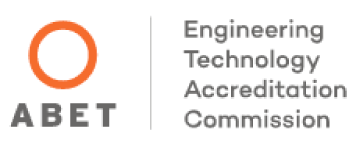Industrial Systems Engineering
As an industrial engineer, your mission is to improve existing processes, make sure they work properly, and invent completely new systems so that global industries and economies continue to evolve.
Why study Industrial Systems Engineering?
14%
Expected employment rate growth by 2030 for industrial engineering in the United States; driven by innovation in automation, medical devices, biotechnology, and aerospace.
Oficina de Estadísticas Laborales de Estados Unidos
8º
Mexico´s position in the list of the 10 countries that produce the most engineers in the world; led by Russia, the United States, and Iran.
Instituto de Estadística de la UNESCO
24,000
The number of industrial engineers who graduate in Mexico each year, developing innovation at the national level and filling thousands of positions in various companies in the United States.
Cámara Nacional de la Industria Electrónica, de Telecomunicaciones y de Tecnologías de la Información
What does a graduate in Industrial Systems Engineering do?
Industrial engineers are, in a way, the orchestra conductors of industrial processes. They analyze, design, manage and improve processes from production systems and services to assignment and programming of personnel, resources, quality control, inventories, and security.
In other words, they integrate people, machinery, information, materials, and energy into complex processes to make a product or provide a service.
That is why industrial engineering is one of the areas of knowledge with the greatest impact in the world of engineering and global economy.
In México, engineering careers have experienced enormous growth in recent years, making it a source of talent for multiple industries that operate in the United States, given its proximity, cultural compatibility, and bilingual talent.
At Arkansas State University Campus Querétaro, we will prepare you to be a professional with the skills to specialize in any of the areas (new and traditional) of industrial engineering. With this degree, you will be a certified professional in Mexico and the United States, which opens a world of possibilities.
Apply now, start your path in the world of industrial engineering and get ready to do your part in building a better future.
Live the University
Double Degree
Valid in México and the United States
Classes 100% in English
With a multicultural team of teachers
American University Model
The first US university in México
Acredited


Request Information
Our Student Testimonials




Labor Field Where do Industrial Engineers work?
Industrial professionals work in all kinds of companies and factories.
- Factories
- Manufacturing plants
- Construction projects
- Piers
- Corporate
Aspire, Dream, Realize Some great engineers of the 21st century


Lynn Conway
American computer scientist and electrical engineer
Inventor of “generalized dynamic instruction handling,” now vital to computer processors.


Alexander Balankin
Member of the Science Advisory Board
Mexican engineer winner of the UNESCO Science Prize.


Ellen Ochoa
Director of the National Science Board
First Hispanic woman to go to space.


Satya Nadella
CEO of Microsoft
Cloud computing pioneer.
Learning Outcomes
Upon completion of the Industrial Systems Engineering degree, the graduate of Arkansas State University Campus Querétaro will be able to:
1. Apply knowledge of mathematics, science, and engineering.
2. Design and conduct experiments, as well as analyze and interpret data.
3. Function in multidisciplinary teams.
4. Identify, formulate, and solve engineering problems.
5. Understand ethical and professional responsibility.
6. Communicate effectively.
7. Understand the impact of engineering solutions in a global, economic, environmental, and social context.
8. Recognize the need and have the ability to engage in lifelong learning.
9. Understand contemporary problems.
10. Use modern engineering techniques, skills, and tools necessary in engineering.
11. Design a system, component, or process to meet desired needs within realistic constraints such as economic, environmental, social, political, ethical, health and safety, manufacturability, and sustainability.
Degree Plan
General Education
- First Year Experience
- Concepts of Engineering
- Composition
- Composition I
- Oral Communication
- Calculus
- Calculus I
- Calculus II
- General Chemistry I Laboratory
- General Chemistry
- University Physics
- Social Science Elective
- Fine Arts Elective
- Humanities Elective
Engineering Core
- Concepts of Engineering
- Software Applications for Engineers
- Applied Engineering Statistics
- Statics
- Engineering Economics
- Senior Seminar
- Numerical Methods for Engineers
- Senior Design I
- Senior Design II
Industrial Systems Engineering Core
- Structured Programming
- Differential Equations
- University Physics II
- Mechanics of Materials Laboratory
- Mechanics of Materials
- Electric Circuits I Laboratory
- Electric Circuits I
- Engineering
- Thermodynamics I
- Solid Modeling for Engineers
- Introduction to Manufacturing Processes
- Project Management and Practice
- Modeling Engineering Data
- Quality Control
- Methods Engineering
- Introduction of Optimization
- Analytical Stochastic Modeling
- Systems Simulation Laboratory
- Systems Simulation
- Production Systems Planning and Control
Example of Industrial Systems Engineering Electives
- Engineering Management I
- Entrepreneurship
- Environmental and Resource Economics
- Quality Management
- Applications of Lean Six Sigma
- Machine Design
- Introduction to Mechatronics
- Introduction to Robotics Laboratory
- Digital Electronics I
- Energy Systems
- Power Systems
- Introduction to Manufacturing Processes
- Advanced Manufacturing
- And many more…

